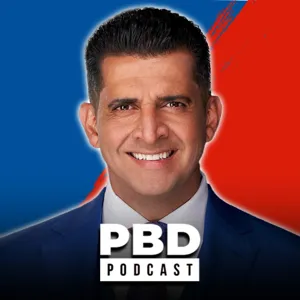Podcast Summary
Complexity and geopolitical implications of Russia-Ukraine conflict: Renowned chess grandmaster and political activist Garry Kasparov shares insights on the history, perception, allegations, effectiveness, and implications of the ongoing conflict between Russia and Ukraine, shedding light on its complexity and geopolitical significance for the Western liberal order.
Learning from this conversation between Sam Harris and Garry Kasparov is the complexity and multifaceted nature of the ongoing conflict between Russia and Ukraine, and the geopolitical implications it holds for the Western liberal order. Kasparov, a renowned chess grandmaster and political activist, shares his unique perspective, having grown up in the Soviet Union and experiencing firsthand the oppression of an unfree society. He became politically active and now advocates for democracy and Western liberal values, including through his work with the Renew Democracy Initiative. In this conversation, they discuss the history leading up to Putin's war of aggression in Ukraine, the perception of the war within Russia, allegations of US and EU foreign policy, NATO expansion, and the role of China. They explore the effectiveness of sanctions, Putin's potential miscalculations, the possibility of a popular uprising, and the implications of imposing a no-fly zone or insisting on regime change. The conversation offers valuable insights into the larger implications for the defense of the Western liberal order.
Putin's Past and Beliefs Indicated Authoritarian Tendencies: Putin's belief in the KGB and Soviet Union, restoration of Soviet anthem, aggressive actions against neighbors, and disregard for sovereignty, showcased his authoritarian and expansionist tendencies, leading to conflicts in Ukraine and Eastern Europe, with devastating consequences.
Vladimir Putin's past as a KGB officer and his views expressed before becoming the president of Russia were clear indicators of his authoritarian and expansionist tendencies. Putin publicly expressed his belief in the importance of the KGB and the Soviet Union, and he saw the collapse of the Soviet Union as a major geopolitical disaster. He restored the Soviet national anthem upon taking office and took aggressive actions against neighboring countries, such as Georgia and Ukraine, in order to assert Russia's control over them. Despite warnings from figures like Garry Kasparov and Boris Nemtsov, the international community did not take Putin's threats seriously until it was too late. Putin's actions, including the annexation of Crimea in 2014 and the ongoing conflict in Ukraine, have resulted in a tragic situation with devastating consequences for the Ukrainian people. The history of the 1930s and the treatment of Hitler in the 1936 Olympics serves as a cautionary tale about the dangers of underestimating the actions of authoritarian leaders. Putin's belief in Russia's entitlement to control Eastern Europe and his disregard for the sovereignty of other countries have made him a significant threat to global security.
NATO expansion vs. American and European weakness as contributing factors to Russia's actions towards Ukraine: Putin's aggression towards Ukraine was not justified by NATO expansion or American and European weakness, but rather by his own imperial ambitions.
The role of NATO expansion and perceived American and European weakness in Russia's actions towards Ukraine are two separate issues. While some argue that NATO expansion provoked Putin, others point to American and European weakness as a contributing factor. However, given the atrocities committed during the war in Ukraine, it's clear that these arguments were misguided and emboldened Putin to act aggressively. NATO expansion did not pose an immediate threat to Russia, and the desire of Baltic countries to join NATO was a response to their historical experiences. American and European weakness, on the other hand, created an opportunity for Putin to act with impunity. It's important to recognize that Putin's actions were not justified by these factors and that his aggression towards Ukraine was a result of his own imperial ambitions.
Putin's calculated moves in Ukraine and Syria: Putin's actions in Ukraine and Syria were driven by his desire for geopolitical influence and negotiating power. He miscalculated Western response in Ukraine but seized opportunity in Syria, exploiting perceived US weakness.
Russian President Putin's actions in Ukraine and Syria can be seen as calculated moves, driven by his desire for geopolitical influence and negotiating power. Putin's military buildup around Ukraine was open and bold, but he miscalculated the Western response and the speed at which world opinion would turn against him. In Syria, there was no imminent threat to Russia, but Putin saw an opportunity to strengthen his position. Putin's read of the situation was that the US was not ready to confront him decisively, and he was able to use this perception to his advantage. The US administration tried to separate issues, such as climate change talks and the Iranian nuclear deal, from the conflict in Ukraine, but Putin saw only weakness. Putin is a skilled negotiator and poker player, and he was able to bluff and raise the stakes to win. Ultimately, Putin's actions in Ukraine and Syria reflect his strategic goals and his ability to read the geopolitical landscape.
Impact of Russian war in Ukraine on Russian public opinion: Russian losses and civilian casualties are reportedly changing public opinion, but censorship and crackdown on dissent limit information flow
Despite Putin's efforts to control the flow of information within Russia and present the war in Ukraine as a liberation, the reality of massive Russian losses and civilian casualties is reportedly filtering through and shifting public opinion. The initial strategy was to take over Kyiv quickly and present a new pro-Russian leader, but the failure to do so led to a change in tactics and increased bombardment of Ukrainian cities. The information bubble around Russia is not completely impermeable, and the reality of the war's impact on Russian soldiers and civilians may be slowly changing attitudes. However, the Russian government's censorship and crackdown on dissent continue to limit the spread of information and the ability of the Russian people to make informed decisions.
Fear of truth in Putin's regime: Putin's regime strictly enforces propaganda, threatening up to 15 years in prison for contradicting official version of events in Ukraine. Regime change unlikely unless significant economic damage causes social and economic unrest.
The Russian government strictly enforces its propaganda, with up to 15 years in prison for contradicting the official version of events in Ukraine. This fear of truth being spread is a significant threat to Putin's regime. However, despite political protests and economic sanctions, Putin's dictatorship remains strong, and a massive revolt against him is unlikely unless real, comprehensive sanctions are imposed, causing significant economic damage and potentially leading to social and economic unrest. The bravery of those who protest despite the risks shows the personal nature of this choice, but it is not enough to bring about regime change.
Russian People's Loyalty to Putin is Based on Personal Gains, Not Ideology: The speaker argues that the Russian people's loyalty to Putin is not driven by ideology but by personal gains, making it unlikely for them to make significant sacrifices for their leader. The West's approach to sanctions is criticized for being insufficient and undermining their efforts.
The ongoing conflict between Russia and the West, fueled by sanctions, could potentially lead to internal conflict in Russia due to nationalist sentiments. However, the speaker argues that the Russian people's loyalty to Putin is not ideological but based on personal gains, making it unlikely for them to make significant sacrifices for their leader. The speaker also criticizes the West's approach to sanctions, arguing that they should have been more decisive earlier and that continuing to buy Russian oil and gas undermines their efforts. The speaker advocates for a no-fly zone and believes that Russian pilots and generals are unlikely to risk their lives for Putin in a confrontation with NATO. Overall, the speaker believes that the situation requires bold action and that the West must be prepared to make significant sacrifices to protect Ukraine and deter further Russian aggression.
Responding to Putin's threats requires decisive action: Decisive action, including economic pressure and potential oil embargo, is necessary to collapse Putin's regime and ensure peace.
Effective responses to threats from authoritarian leaders like Putin require decisive action, not just empty threats. Sanctions may have prevented conflict in the past, but now that war has begun, more drastic measures are necessary. This means imposing maximum economic pressure on Russia, including a potential oil embargo, even if it means helping other problematic countries in the process. The end goal should be the collapse of Putin's regime, as long as he remains in power, there can be no peace. It's essential to prioritize this objective and mobilize all available resources from the international community. The spirit of Ukraine's fight for freedom and democracy should inspire us to ensure that the outcome of this war is not just the restoration of Ukrainian territorial integrity but also the liberation of Russia from authoritarian rule.
Discussing the dangers of implementing a no fly zone in Ukraine-Russia conflict: Implementing a no fly zone in the Ukraine-Russia conflict could lead to dangerous escalation, even involving nuclear weapons, due to Russian President Putin's unpredictability.
Implementing a no fly zone in the current conflict between Ukraine and Russia could potentially lead to a dangerous escalation, even involving nuclear weapons. Sam Harris and his guest discussed the potential consequences of this military intervention, which could result in a shooting war between nuclear-armed powers. The unpredictability of Russian President Vladimir Putin, who has already threatened to use nuclear weapons, adds to the concern. A no fly zone, which would involve shooting down Russian planes, could be seen as an act of war and could lead to further escalation. It's crucial to consider the potential consequences of military intervention and explore alternative diplomatic solutions to avoid the risk of a larger conflict. The conversation also touched upon the importance of subscribing to Sam Harris's podcast for access to full-length episodes and other exclusive content.





